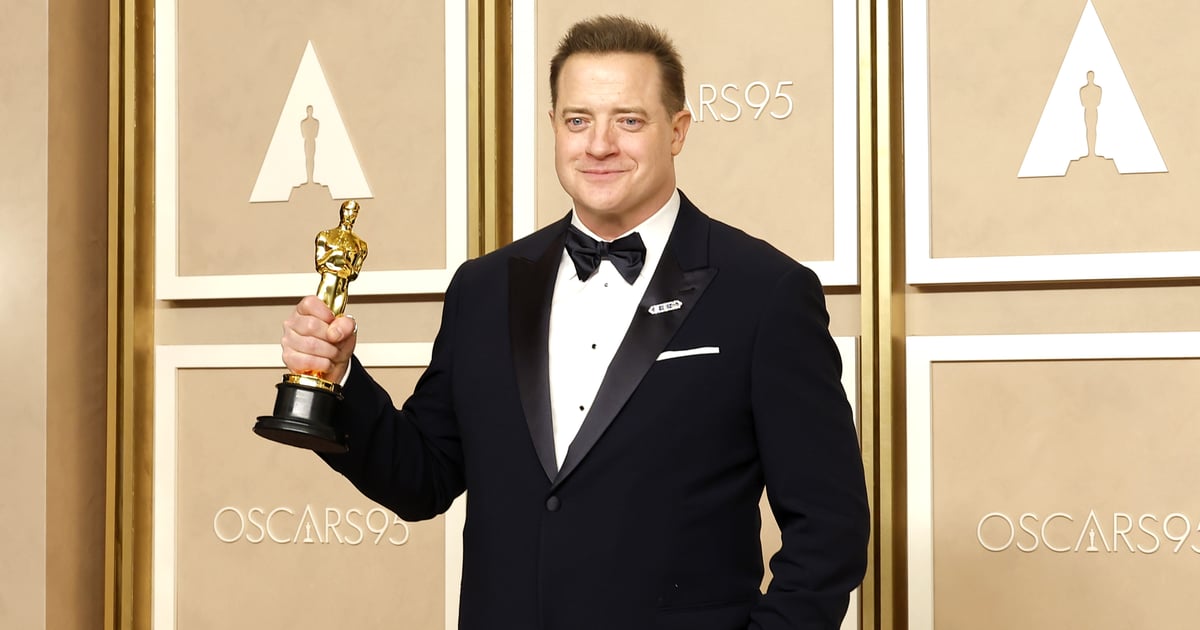
Brendan Fraser’s comeback tour continues. The 54-year-old won the Oscar for best actor on March 12 for “The Whale,” despite the film being criticized for its fatphobia. Fraser called the film a “creative lifeline” during his Oscars speech, acknowledging “things didn’t come easy” to him.
This win comes after Fraser received a five-minute standing ovation at the London Film Festival during a screening of “The Whale” in October, per People. He also received a similar response at a screening at the Venice International Film Festival in September. The emotional response from others has been in part a reaction to Fraser’s incredible achievement: a triumphant return after decades of struggling with depression.
Known for starring in hit movies in the 1990s and early 2000s, like “The Mummy” and “George of the Jungle,” Fraser’s career took a sharp decline after he was allegedly sexually assaulted by the then-president of the Hollywood Foreign Press Association, Philip Berk. In a GQ article, Fraser questioned whether he had been “blacklisted” by Hollywood due to the allegations. In a different GQ article published in 2018, he also cited the injuries from doing his own stunts, subsequent surgeries, his divorce, and his mother’s death as additional reasons he stepped away from movies.
The actor fell into a severe depression — which can include symptoms like trouble sleeping, changes in appetite or weight, loss of energy, and feeling worthless, according to Harvard Medical — that left him incapable of working. After spending two decades away from acting and focusing on his mental health, Fraser’s first time back on the big screen was in the psychological thriller “The Whale,” where Fraser plays a 600-pound gay man who attempts to reconnect with his estranged daughter, played by Sadie Sink.
In an interview with Variety, Fraser said the positive response “felt so affirming. I was emotional because it was acknowledgment that what we did made an impact. And that kind of response feels completely new in my professional life.” At the London Film Festival, Fraser wasn’t the only one crying in the theater; one Twitter user wrote, “Brendan Fraser gives the performance of a lifetime in #TheWhale. Never heard so many people crying in the cinema at once.”
While the film has been well-received by many audiences, some have questioned why director Darren Aronofsky didn’t cast a fat and/or gay actor to play the role, especially during a time when onscreen representation of marginalized communities is so strongly advocated for. Instead, Fraser wears a 300-pound prosthetic or “fat suit” and is a straight man. Aronofsky told Variety, “I wasn’t surprised by the blowback, because of the history of the way that obesity is treated on film. And we live in cynical and reactionary times.” Ultimately, he says they wanted someone “who could pull off the emotions of the role.” Per Variety, Fraser also did extensive research to prepare, consulting with the Obesity Action Coalition and talking with people who experienced eating issues.
“They let me know what their diet was and how obesity had affected their lives in terms of their relationships with loved ones,” Fraser said. “It was heartbreaking, because very often these people were mocked and made to feel awful about themselves. Vindictive speech is painful. And it does damage because it feeds into the cycle of overeating. I just left those conversations thinking, ‘Hey, this is not your fault. This is an illness. This is an addiction.'”
